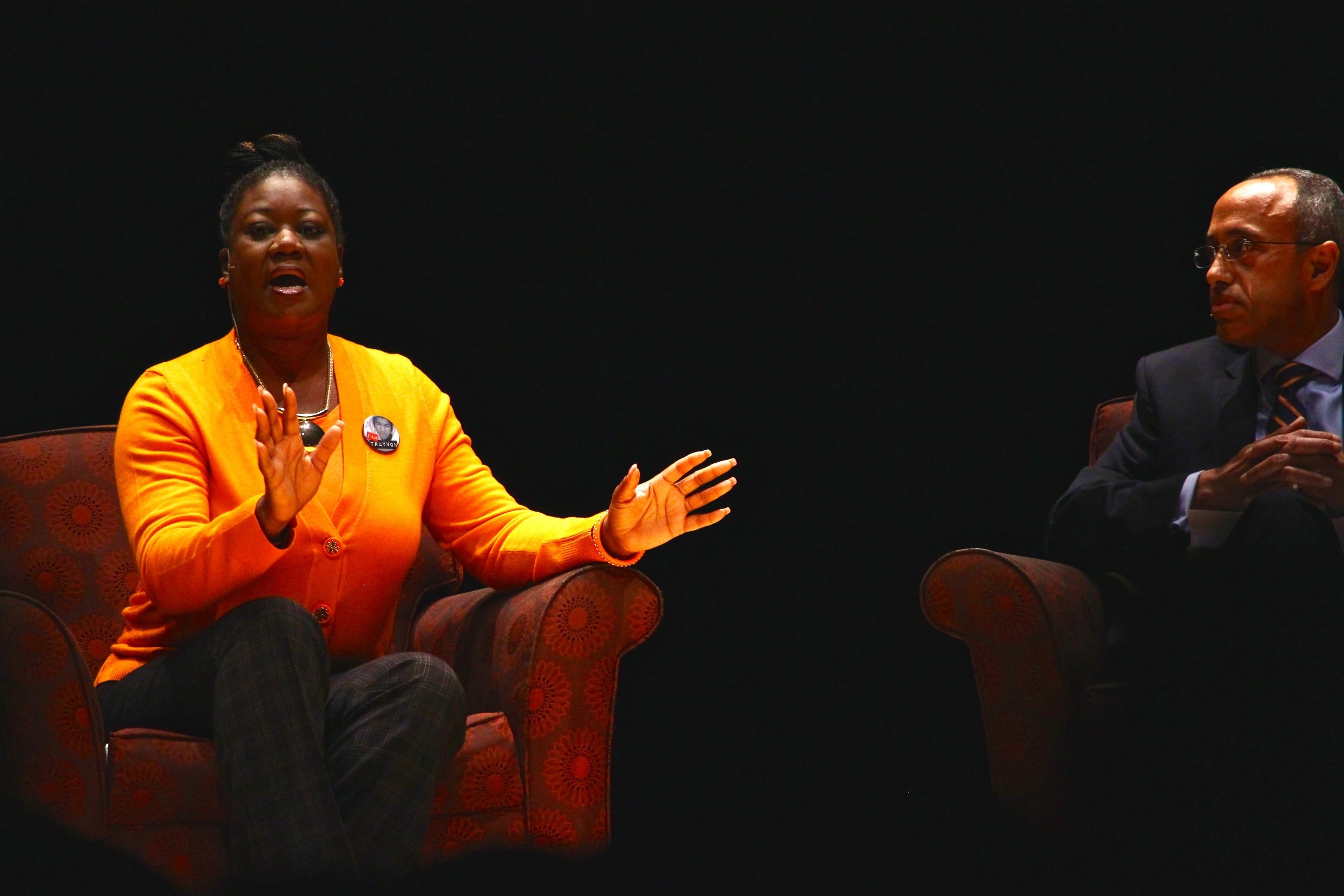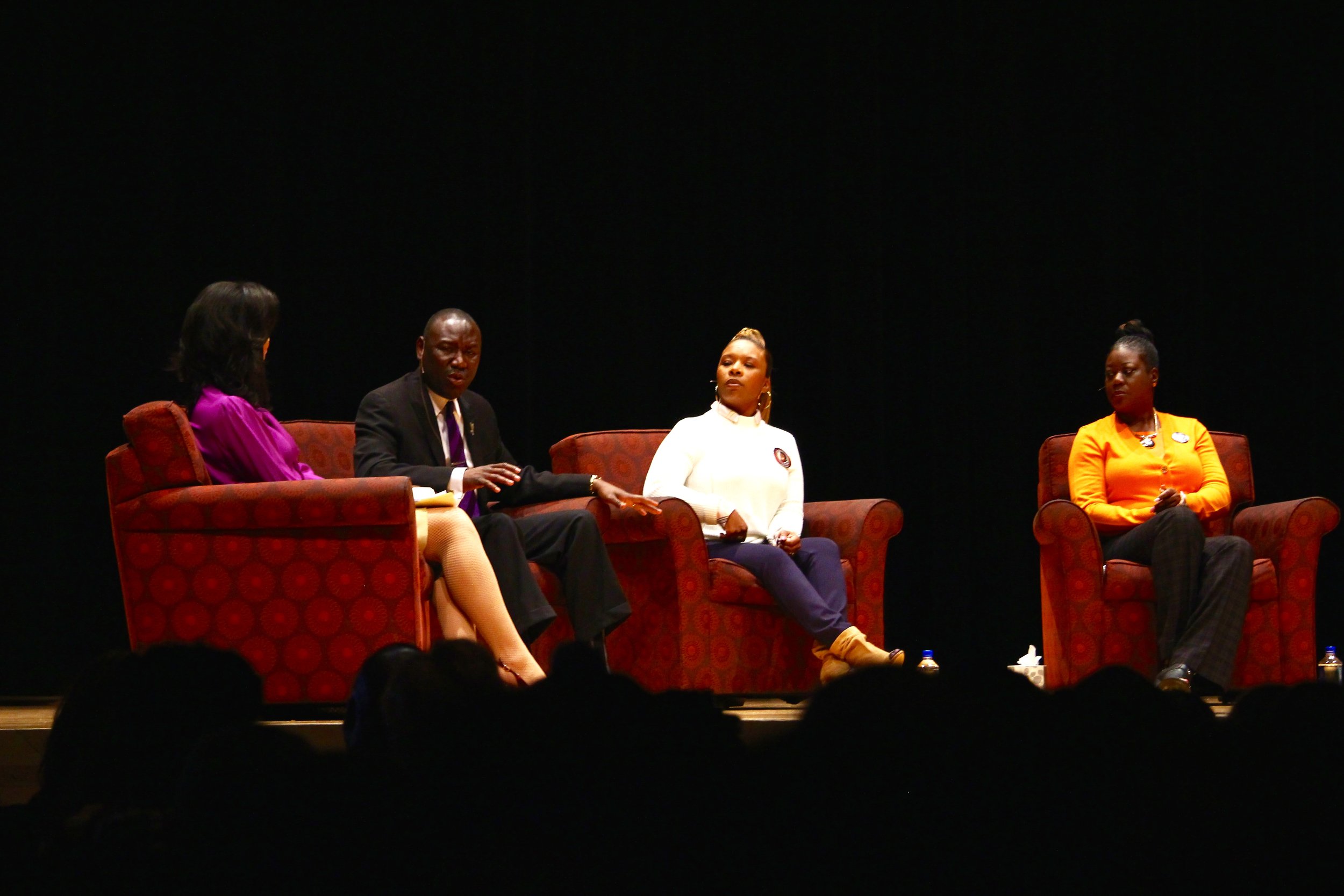Trayvon Martin and Michael Brown's Mothers Speak at SU
 As a member of the press, it’s my job to remain objective. But to remain objective when you hear the stories first hand of two mothers who lost their sons to police brutality is hard—really hard.
On October 28, the National Pan Hellenic Council brought Lesley McSpadden, the mother of Michael Brown, and Sybrina Fulton, the mother of Trayvon Martin, to Syracuse University as part of a moving panel on police brutality and injustice in the United States. They were joined by Benjamin Crump, president of the National Bar Association, and journalists Sunny Hostin and Fredricka Whitfield of CNN.
As a member of the press, it’s my job to remain objective. But to remain objective when you hear the stories first hand of two mothers who lost their sons to police brutality is hard—really hard.
On October 28, the National Pan Hellenic Council brought Lesley McSpadden, the mother of Michael Brown, and Sybrina Fulton, the mother of Trayvon Martin, to Syracuse University as part of a moving panel on police brutality and injustice in the United States. They were joined by Benjamin Crump, president of the National Bar Association, and journalists Sunny Hostin and Fredricka Whitfield of CNN.
In the heat of a nation-wide discussion on police brutality, it is easy to forget where it all begins: the victims and their families. “It’s been three years for me. It seems like it just happened yesterday,” Fulton says. “It’s something I have to carry every single day of my life.”
This panel allowed us to cherish and remember the lives of Brown and Martin. In most cases, the media tend to focus on the drama of the act—how many times the victim was shot, where he was shot, and how the events unfolded. The media ignore the fact that these victims, in most cases, are normal, innocent teenagers with promising futures. “He was very loving, he was a leader,” McSpadden said of Brown. “He wanted to make an example. That’s why he was so determined to graduate from high school.”
Fulton spoke similarly of Martin: he enjoyed fashion, talking to girls, and like any other teenager, was constantly on his cell phone. When Martin was shot, he wasn’t thinking like an adult. He was thinking like a 17 year old, Fulton says. “My son was on the phone with a young woman from Miami. He wasn’t paying attention.”



 Fulton and McSpadden help us to put faces and personalities to these tragedies, so that maybe, just maybe, we could begin to understand. Begin to understand what it’s like to be racially profiled. Begin to understand what it’s like to be suspicious because you’re wearing a hoodie. Begin to understand what it’s like to lose a child.
Fulton and McSpadden help us to put faces and personalities to these tragedies, so that maybe, just maybe, we could begin to understand. Begin to understand what it’s like to be racially profiled. Begin to understand what it’s like to be suspicious because you’re wearing a hoodie. Begin to understand what it’s like to lose a child.
The day Fulton found out her son was shot is a vivid, horrific memory. But it wasn’t the worst day of her life. “The worst day of my life was seeing my 17 year-old son stretched out in a casket in front of my church in his home-going service.” For Fulton, it’s this memory that brings her the greatest sorrow, but also the greatest ambition to put an end to gun violence.
For every Trayvon Martin and Michael Brown, there are countless kids and teenagers that are victims of police brutality that receive little to no media attention. The Black Lives Matter movement brings attention to this issue that is plaguing our nation.
I can’t put myself in Fulton or McSpadden’s shoes. None of us can. But the least we can do is begin to try to understand their pain and their loss. We can choose to stay informed, to educate ourselves, and to take a close, analytical look at instances of police brutality.
Whether you’re Black, white, Native American, Asian, biracial—the list goes on—the Black Lives Matter movement matters. It matters because it is a demand not for superiority, but for equality. We can all make a difference in the fight against police brutality. If we don’t do it, if we don’t act, nobody will.
